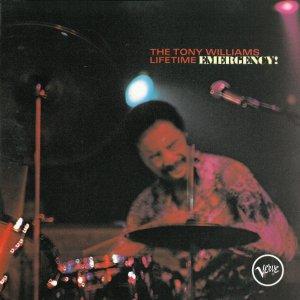Emergency!


| Tracklist | |||
| A1 | Emergency | 9:35 | |
| Notes: |
Written-By - Anthony Williams |
||
| A2 | Beyond Games | 8:17 | |
| Notes: |
Written-By - Anthony Williams |
||
| B3 | Where | 12:10 | |
| Notes: |
Written-By - John McLaughlin |
||
| B4 | Vashkar | 4:59 | |
| Notes: |
Written-By - Carla Bley |
||
| C5 | Via The Spectrum Road | 7:49 | |
| Notes: |
Written-By - Anthony Williams |
||
| C6 | Spectrum | 8:50 | |
| Notes: |
Written-By - John McLaughlin |
||
| D7 | Sangria For Three | 13:07 | |
| Notes: |
Written-By - Anthony Williams |
||
| D8 | Something Special | 5:37 | |
| Notes: |
Written-By - Dave Herman |
||
Artwork By [Cover Design] - Elaine Gongoram
Drums - Anthony Williams
Executive Producer - Bill Levenson
Executive Producer - Richard Seidel
Guitar - John McLaughlin
Liner Notes - John McDermott
Liner Notes - Ralph J. Gleason
Mastered By [Reissue] - Joseph M. Palmaccio
Mastered By [Reissue] - Phil Schaap
Organ - Larry Young
Photography, Artwork By [Art Direction] - Sid Maurer
Producer - Jack Lewis
Producer - Monte Kay
Recorded By, Mixed By - Gene Radice
Reissue Producer - Jerry Rappaport
Recorded at Olmstead Sound Studios, New York City, May 26 & 28, 1969

